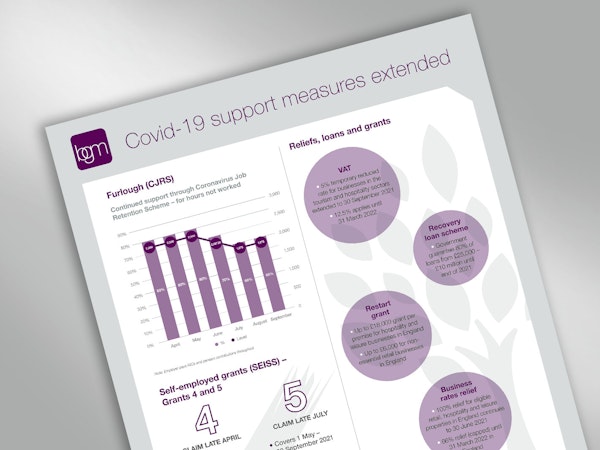HMRC targets employers over CJRS claims
With reports of two-thirds of furloughed employees continuing to work during the Covid-19 lockdown, despite the initial prohibition of work as an explicit condition of furlough, it is no surprise that HMRC has already written to 3,000 employers it believes may need to repay some or all of the grant they have received under the Coronavirus Job Retention Scheme (CJRS).

Until 30 June, it was a condition of the scheme that furloughed employees cease all work in relation to their employment. Flexible furlough was brought in from 1 July, so HMRC are likely to only pursue the most blatant cases of employees continuing to work, such as where an employer instructed them to do so.
Incorrect claims
HMRC will also be concerned where an employer has:
- Claimed more grant than they are entitled to, for example, where a claim is based on inflated wage figures.
- Claimed the grant despite not meeting the conditions such as including ineligible employees.
- Not passed the grant on as wages to the furloughed employees.
HMRC’s target is those who have deliberately defrauded the system. However, even if they believe no mistake has been made in their claims, any employer contacted by HMRC should respond to the enquiry.
Amnesty
An employer can repay any overpaid amount of CJRS grant without incurring a penalty provided HMRC is notified within 90 days of the later of:
- 20th October 2020;
- the date the grant was received, or
- the date when circumstances changed so the employer is no longer entitled to keep the grant.
Failure to meet the deadlines could result in a minimum penalty of 30% of the grant improperly claimed, with a potential maximum penalty of 100%.
The overpaid amount may be recovered by HMRC making an assessment. Otherwise, the employer will be subject to a tax charge payable on the usual tax due dates for an individual or a company.
Latest HMRC guidance on eligibility for the furlough scheme can be found here.





